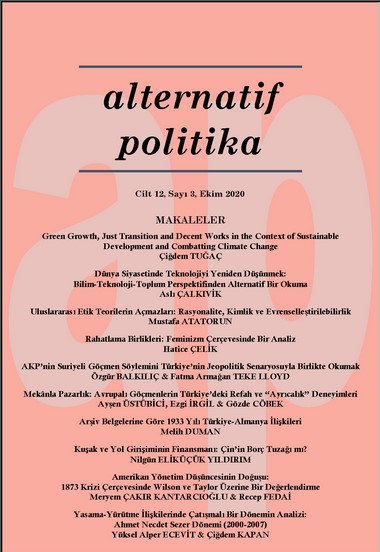YASAMA-YÜRÜTME İLİŞKİLERİNDE ÇATIŞMALI BİR DÖNEMİN ANALİZİ: AHMET NECDET SEZER DÖNEMİ (2000-2007)
AN ANALYSIS OF A CONFRONTATIONAL PERIOD IN LEGISLATIVE-EXECUTIVE RELATIONS: THE CASE OF AHMET NECDET SEZER (2000-2007)
Author(s): Yüksel Alper Ecevit, Çiğdem KAPANSubject(s): Constitutional Law, Political history, Government/Political systems, Political behavior, Politics and law, Comparative politics, Post-War period (1950 - 1989), Transformation Period (1990 - 2010), Present Times (2010 - today)
Published by: Rasim Özgür DÖNMEZ
Keywords: Government Types; Ahmet Necdet Sezer; Principal-Agent Theory; Parliamentary Systems; Political Institutions;
Summary/Abstract: According to the parliamentary system in the 1982 Constitution, government was formed from within the parliament. Presidents were elected for a seven-year term and were given both legislative and executive powers to a certain extent. Political science literature widely accepts that presidents are given symbolic roles in the parliamentary systems. Contrary to these expectations, Sezer era (2000-2007) marks the most confrontational period of legislative and executive relations in Turkish history, as the right to veto the bills was used at an unprecedented level. There is an existing competition between principal-agent theories and the political opportunity framework theory in defining the type of government systems. While the former evaluates the political system according to the chain of delegation, the latter focuses on the relationship between relevant actors and the context in which these interactions occur. The central motive behind analysing the Sezer era is as follows. The Sezer era is unique in the sense that the president had to work with two totally different assemblies in terms of political parties and individual members. This gives us a platform for natural experiment to evaluate whether Sezer’s political behaviour solely satisfies expectations from the parliamentary set-up or they are shaped by the existing political opportunity structure nested in the political system. To answer these questions, we investigated presidential vetoes on parliaments’ bills. Our findings contradict with the expectations of the theories based on the principal-agent framework. We argue that Sezer’s behaviour is motivated by his political views as well as the constitutional constraints. This study would shed the light on how to categorize Turkey’s government type between 1982 and 2017.
Journal: Alternatif Politika
- Issue Year: 12/2020
- Issue No: 3
- Page Range: 673-699
- Page Count: 27
- Language: Turkish

